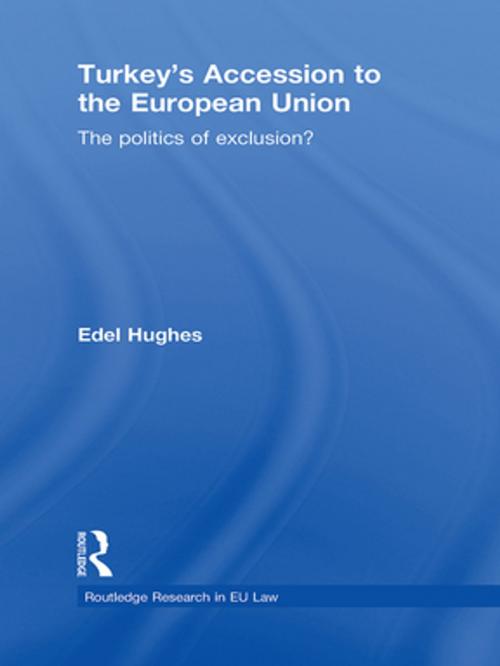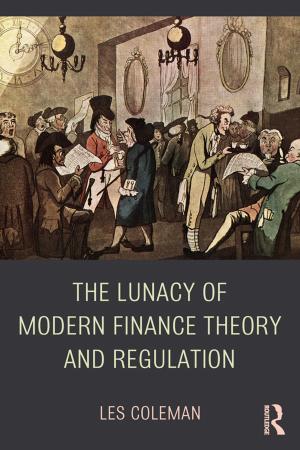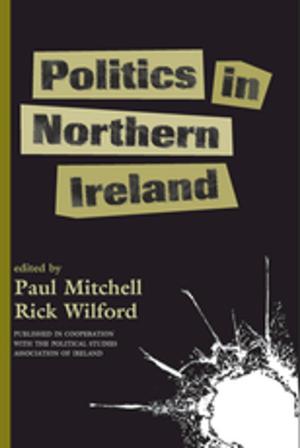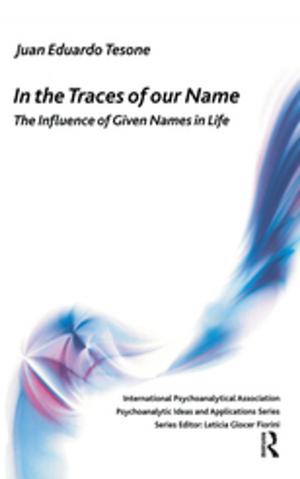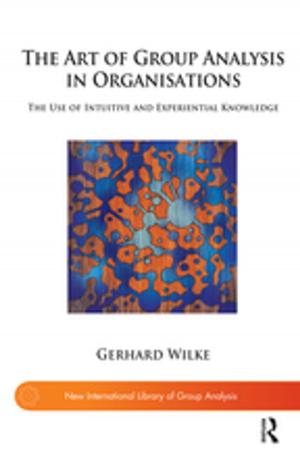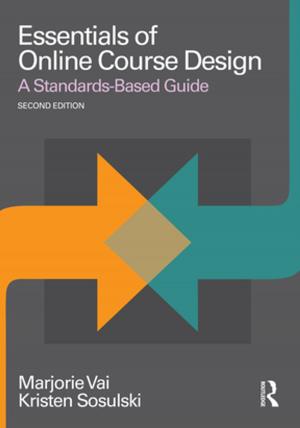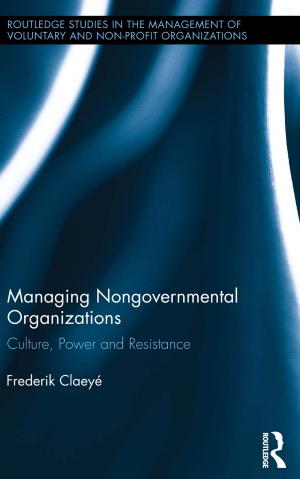Turkey's Accession to the European Union
The Politics of Exclusion?
Nonfiction, Reference & Language, Law, Comparative, Social & Cultural Studies, Political Science| Author: | Edel Hughes | ISBN: | 9781136914447 |
| Publisher: | Taylor and Francis | Publication: | October 4, 2010 |
| Imprint: | Routledge | Language: | English |
| Author: | Edel Hughes |
| ISBN: | 9781136914447 |
| Publisher: | Taylor and Francis |
| Publication: | October 4, 2010 |
| Imprint: | Routledge |
| Language: | English |
Turkey’s accession to the European Union is undoubtedly one of the Union’s most contested potential enlargements. The narrative that dominates the debate surrounding this issue primarily relates to problems such as a lack of respect for fundamental human rights in Turkey, the Kurdish question and the continuing stalemate concerning northern Cyprus.
This book looks at these issues, but also proposes that a review of Turkey’s experience with the EU in its numerous incarnations suggests that these concerns may mask a deeper disquiet. Whilst there are several questions that Turkey must address, particularly in the area of human rights guarantees, the concerns which raise debates regarding Turkish membership are not issues that are unique to Turkey. Turkey’s EU experience also raises fundamental questions about religion and the EU project that have greater implication than simply Turkish accession. Through the lens of the Turkish example, this book addresses these broader questions, such as the nature of European ‘identity’, Europe’s Christian past, the limits of pluralism and the fundamental question of religion in the European public sphere.
This book will be of great interest to those engaged in research on European law and politics at undergraduate or postgraduate level. It is also aimed at academics with an interest in human rights and the European Union and with a regional interest in Turkey.
Turkey’s accession to the European Union is undoubtedly one of the Union’s most contested potential enlargements. The narrative that dominates the debate surrounding this issue primarily relates to problems such as a lack of respect for fundamental human rights in Turkey, the Kurdish question and the continuing stalemate concerning northern Cyprus.
This book looks at these issues, but also proposes that a review of Turkey’s experience with the EU in its numerous incarnations suggests that these concerns may mask a deeper disquiet. Whilst there are several questions that Turkey must address, particularly in the area of human rights guarantees, the concerns which raise debates regarding Turkish membership are not issues that are unique to Turkey. Turkey’s EU experience also raises fundamental questions about religion and the EU project that have greater implication than simply Turkish accession. Through the lens of the Turkish example, this book addresses these broader questions, such as the nature of European ‘identity’, Europe’s Christian past, the limits of pluralism and the fundamental question of religion in the European public sphere.
This book will be of great interest to those engaged in research on European law and politics at undergraduate or postgraduate level. It is also aimed at academics with an interest in human rights and the European Union and with a regional interest in Turkey.
